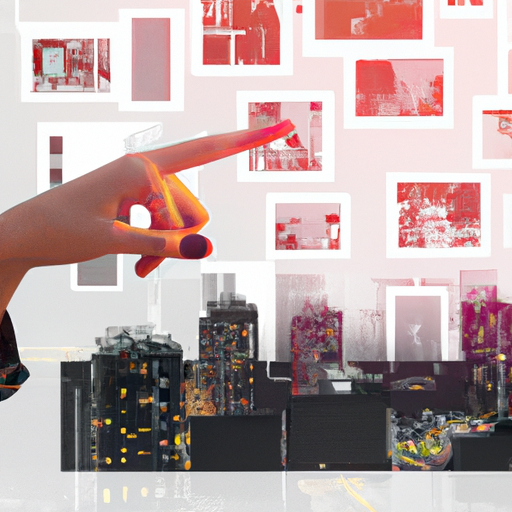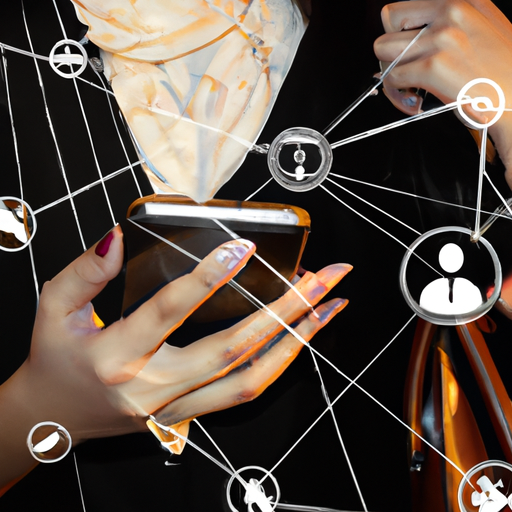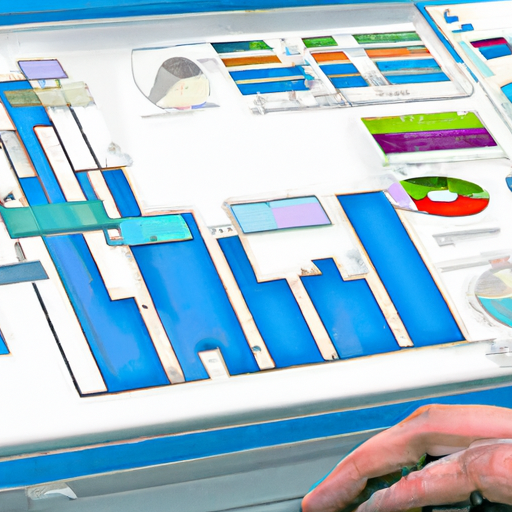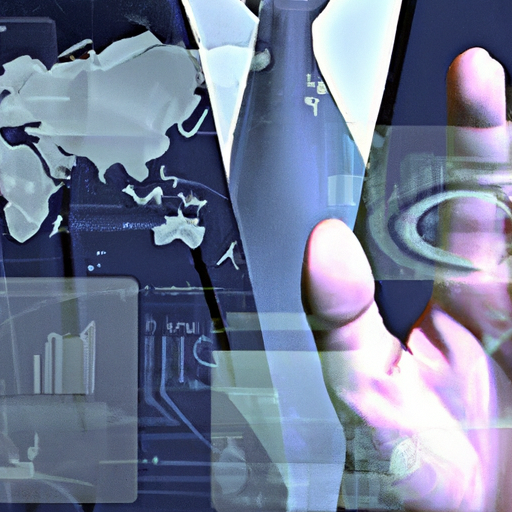Hotel Technology Trends
You’re about to embark on a journey through the mesmerizing world of hotel technology trends. Brace yourself as we explore the ever-evolving landscape of the hospitality industry, where innovation meets luxurious experiences. From cutting-edge advancements in keyless entry systems to intuitive guest service apps, this article will uncover the latest trends shaping the way hotels cater to their guests. Get ready to be amazed by the seamless integration of technology into the fabric of modern hospitality.
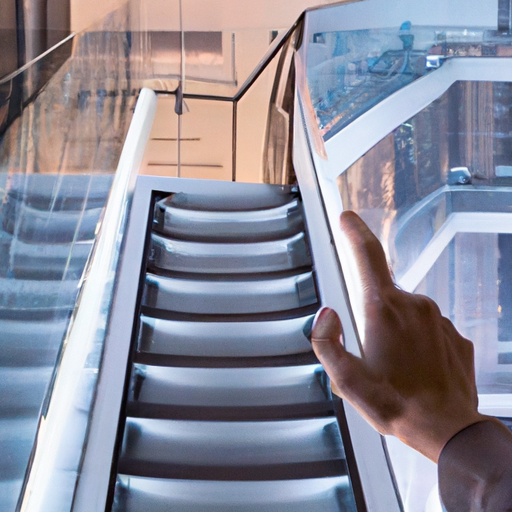
Table of Contents
Internet of Things (IoT) in Hotels
The Internet of Things (IoT) revolution has made its way into the hospitality industry, enhancing the overall guest experience and improving hotel operations. With IoT, hotels can incorporate smart room controls, energy efficiency measures, and personalized guest experiences.
Smart Room Controls
Imagine walking into your hotel room and having everything automatically adjust to your preferences. With IoT-enabled smart room controls, this is now a reality. From temperature and lighting to entertainment and curtains, these smart devices can be controlled with a single device or even voice commands. You can easily create the perfect ambiance for a comfortable stay without having to fiddle with multiple switches or remotes.
Energy Efficiency
Hotels have long been looking for ways to reduce energy consumption and improve sustainability. IoT can play a crucial role in achieving these goals. Smart sensors and devices can monitor energy usage in real-time, allowing hotels to identify areas of wastage and optimize energy consumption. For example, with IoT-enabled thermostats, hotels can automatically adjust the room temperature based on occupancy, saving energy when rooms are unoccupied.
Personalized Guest Experiences
In today’s competitive hospitality industry, providing personalized experiences is key to standing out from the crowd. IoT technologies enable hotels to better understand guest preferences and tailor their services accordingly. By collecting data from various touchpoints, such as mobile apps, in-room devices, and loyalty programs, hotels can create unique experiences for each guest. From personalized greetings upon arrival to customized recommendations for activities and dining options, IoT can help create memorable experiences that keep guests coming back for more.
Artificial Intelligence in the Hospitality Industry
Artificial Intelligence (AI) is revolutionizing the hospitality industry by enabling hotels to automate processes, improve guest interactions, and make data-driven decisions.
Chatbots and Virtual Assistants
Gone are the days of waiting in long queues or struggling to get connected with a hotel representative. Chatbots and virtual assistants powered by AI can provide instant and personalized assistance to guests. Whether it’s answering common queries, booking reservations, or providing recommendations, these AI-powered bots can handle a wide range of tasks, freeing up staff to focus on more complex guest requests.
Predictive Analytics
AI-powered predictive analytics can help hotels anticipate guest needs and preferences. By analyzing past guest behavior, such as booking patterns, feedback, and social media interactions, hotels can make personalized recommendations and offers. For example, AI can suggest room upgrades or additional services based on a guest’s previous preferences, leading to increased guest satisfaction and revenue.
Robotic Concierge
Robots are becoming a common sight in hotels, taking on roles such as concierge and room service. These AI-powered robots can provide information about hotel amenities, local attractions, and even deliver room service to guest rooms. By freeing up human staff from repetitive tasks, hotels can streamline operations and provide a unique and futuristic guest experience.
Mobile Technology for Hotel Operations and Guest Services
Mobile technology has become an integral part of our lives, and hotels have tapped into its potential to enhance guest services and streamline operations.
Mobile Check-In and Check-Out
Forget about waiting in line at the front desk to check-in or check-out. With mobile check-in and check-out, guests can complete these processes right from their smartphones. This not only saves time but also gives guests the flexibility to arrive at the hotel and head straight to their rooms.
Keyless Entry
No more worrying about losing your room key or fumbling to find it in your bag. With keyless entry systems, guests can use their smartphones as digital keys to access their rooms. This not only adds convenience but also provides an added layer of security as digital keys can be easily deactivated if lost.
Mobile Concierge Services
Guests can now have a personalized concierge service at their fingertips with mobile concierge apps. These apps allow guests to request services, such as housekeeping, room service, or even book spa appointments or restaurant reservations, all from their mobile devices. Hotels can improve guest satisfaction and loyalty by providing seamless and convenient access to their services.
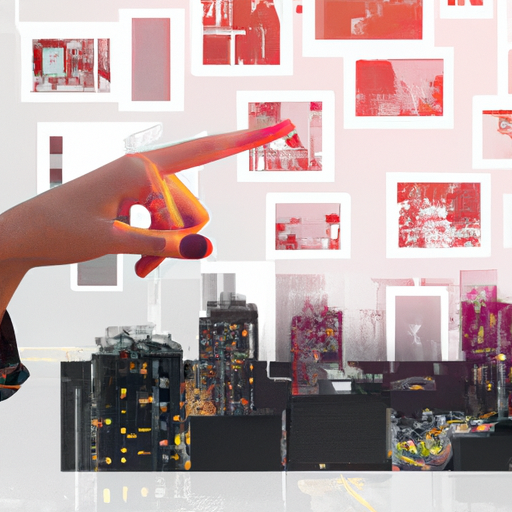
Cloud Computing Solutions in the Hotel Industry
cloud computing has transformed the way hotels store and manage their data, collaborate with their teams, and reduce IT infrastructure costs.
Data Storage and Management
Traditionally, hotels would rely on physical servers and on-premises storage solutions to manage their data. With cloud computing, hotels can now store and manage their data securely in the cloud. This eliminates the need for expensive hardware and allows for easy scalability as data storage needs increase.
Enhanced Collaboration
Hotels often operate across multiple locations and departments, making collaboration a challenge. Cloud computing solutions provide a centralized platform for teams to collaborate, share documents and information in real-time. This streamlines communication and improves overall productivity.
Reduced IT Infrastructure Costs
Maintaining on-premises servers and IT infrastructure can be costly. By moving to cloud-based solutions, hotels can reduce their IT infrastructure costs significantly. Cloud computing eliminates the need for hardware upgrades, server maintenance, and IT staff, allowing hotels to allocate their resources more efficiently.
Enhanced Guest Communication and Experience
Effective guest communication is essential for hotels to provide a seamless and personalized experience. With advancements in technology, hotels can now integrate various communication channels and personalize their interactions with guests.
Social Media Integration
With the increasing popularity of social media platforms, hotels can leverage them to communicate with guests in a more informal and engaging manner. By integrating social media into their communication strategy, hotels can provide updates, answer questions, and offer personalized recommendations to guests even before their arrival.
Personalized Communications
Personalization is key to providing exceptional guest experiences. Through the use of data analytics and guest history, hotels can personalize their communications with guests. This includes personalized emails, SMS notifications, and in-app messages tailored to individual preferences and needs.
Voice-Activated Assistants
The rise of voice-activated assistants, such as Amazon’s Alexa or Google Home, has opened up new possibilities for guest communication. Hotels can provide voice-activated devices in guest rooms, allowing guests to control room features, make requests, and get information with simple voice commands. This not only adds convenience but also enhances the overall guest experience.
Virtual Reality (VR) and Augmented Reality (AR) in Hotels
Virtual and augmented realities are transforming the way guests experience hotels by providing immersive and interactive experiences.
Virtual Tours and 360-Degree Videos
Virtual tours and 360-degree videos allow guests to explore hotel rooms, amenities, and even local attractions without leaving the comfort of their homes. These immersive experiences give potential guests a sense of what it would be like to stay at the hotel, helping them make informed booking decisions.
Interactive Guest Experiences
With augmented reality, hotels can enhance guest interactions and provide unique experiences. For example, using AR-enabled apps, guests can scan restaurant menus and see visual representations of dishes, take virtual tours of the hotel’s facilities with interactive overlays, or even have virtual concierge services guiding them through the hotel.
Remote Collaboration and Training
Virtual and augmented realities also have practical applications beyond guest experiences. Hotels can use these technologies for remote collaboration and training purposes. For example, employees located in different locations can virtually collaborate on projects, access training materials, and learn about new procedures and protocols.
Advanced Revenue Management Systems
Hotels need to constantly optimize their pricing strategies to maximize revenue. Advanced revenue management systems powered by data analytics and algorithms can help hotels make informed pricing decisions.
Dynamic Pricing
Dynamic pricing allows hotels to adjust their room rates in real-time based on factors such as demand, seasonality, and competitor pricing. By analyzing historical and real-time data, hotels can optimize their revenue by offering the right price at the right time. This ensures that rooms are sold at their highest value, even during periods of high demand or low occupancy.
Demand Forecasting
Accurate demand forecasting is crucial for efficient hotel operations. Advanced revenue management systems use historical data, market trends, and other factors to forecast future demand. This enables hotels to align their inventory, staff, and resources accordingly, optimizing operational efficiency and guest satisfaction.
Competitive Rate Analysis
Keeping up with the competition is essential in the hospitality industry. Advanced revenue management systems can analyze competitor rates and positioning in the market. By understanding the competitor landscape, hotels can adjust their pricing strategies to stay competitive while maximizing revenue.
Wireless Charging Technology in Hotel Rooms
Wireless charging technology has become increasingly popular, and hotels are incorporating it into their rooms to enhance guest experiences.
Convenient Charging Options
With wireless charging technology, guests can simply place their smartphones or other devices on a charging pad without the need for cables or adapters. This provides a hassle-free and convenient way to keep devices charged throughout their stay.
Elimination of Cable Clutter
Cables can often be tangled and create a messy environment in hotel rooms. Wireless charging technology eliminates the need for multiple cables, reducing clutter and providing a clean and organized space for guests.
Enhanced Guest Satisfaction
Providing wireless charging options in hotel rooms enhances guest satisfaction. Guests can easily charge their devices without having to search for outlets or worry about compatibility. This small yet significant amenity can leave a positive impression on guests and make their stay more enjoyable.
Biometric Authentication for Enhanced Security
Biometric authentication, such as fingerprint and facial recognition, is being adopted by hotels to enhance security and streamline guest identity verification.
Fingerprint and Facial Recognition
Hotels are leveraging biometric authentication technology to replace traditional keycards or passwords. By using fingerprint or facial recognition, guests can access their rooms or other hotel facilities securely. This eliminates the risk of lost or stolen keycards and provides an added layer of security.
Secure Access Control
Biometric authentication enhances access control measures in hotels. Only authorized individuals with registered biometric data can gain access to specific areas, ensuring the safety and privacy of guests and the hotel’s assets.
Efficient Guest Identity Verification
Streamlining guest identity verification is crucial for a seamless check-in process. Biometric authentication allows hotels to verify guest identities quickly and accurately. This eliminates the need for manual verification processes and reduces check-in times, providing a smoother arrival experience for guests.
Robotics and Automation in Hotel Operations
Hotels are increasingly utilizing robotics and automation to streamline operations, reduce costs, and enhance efficiency.
Housekeeping Robots
Housekeeping robots are being deployed in hotels to automate routine tasks, such as cleaning and restocking. These robots can navigate through hotel corridors, clean rooms, and deliver supplies, freeing up human staff to focus on more guest-centric tasks. This automation improves efficiency and ensures consistent cleanliness standards throughout the hotel.
Automated Room Service
Robotic room service delivery is gaining popularity in hotels. Robots can deliver items such as food trays or amenities directly to guest rooms, reducing wait times and minimizing human error. Automated room service not only provides convenience but also creates a unique and memorable guest experience.
Inventory Management
Managing inventory can be a complex and time-consuming task for hotels. Automation technologies, such as RFID tagging and robotic inventory management systems, can streamline this process. These systems can track inventory levels in real-time, monitor expiration dates, and automatically reorder supplies when necessary. By optimizing inventory management, hotels can reduce waste, minimize stockouts, and improve overall operational efficiency.
In conclusion, hotel technology trends are shaping the future of the hospitality industry. The Internet of Things (IoT), artificial intelligence (AI), mobile technology, cloud computing, enhanced guest communication, virtual and augmented reality (VR/AR), advanced revenue management systems, wireless charging technology, biometric authentication, and robotics and automation are transforming hotels into smart, efficient, and guest-centric establishments. Embracing these technology trends not only enhances guest experiences but also streamline operations, increase revenue, and improve overall efficiency for hotels in the ever-evolving digital age.
